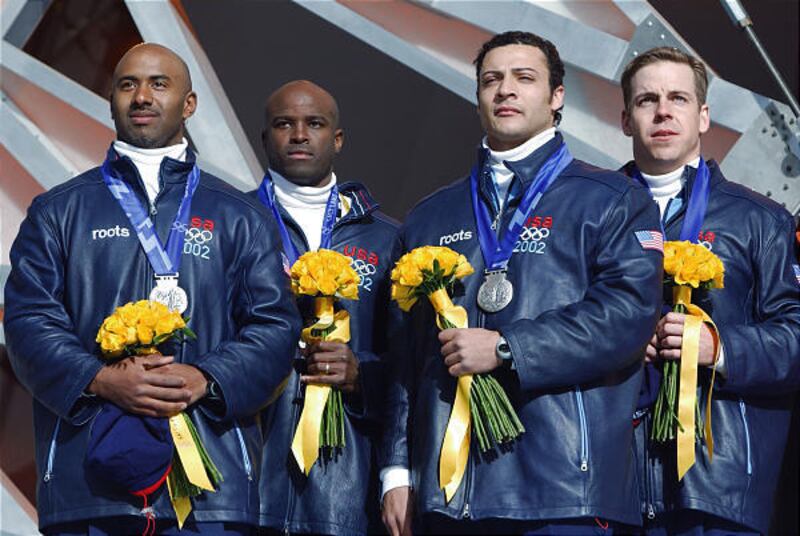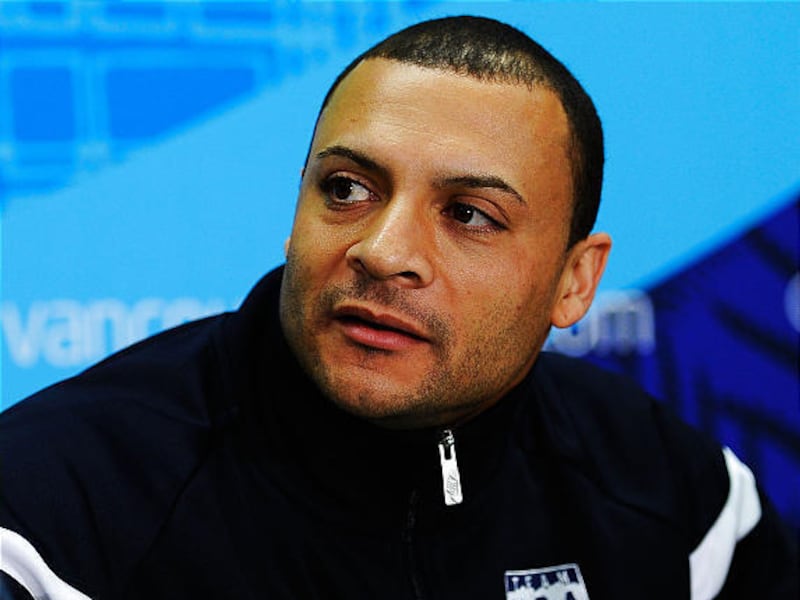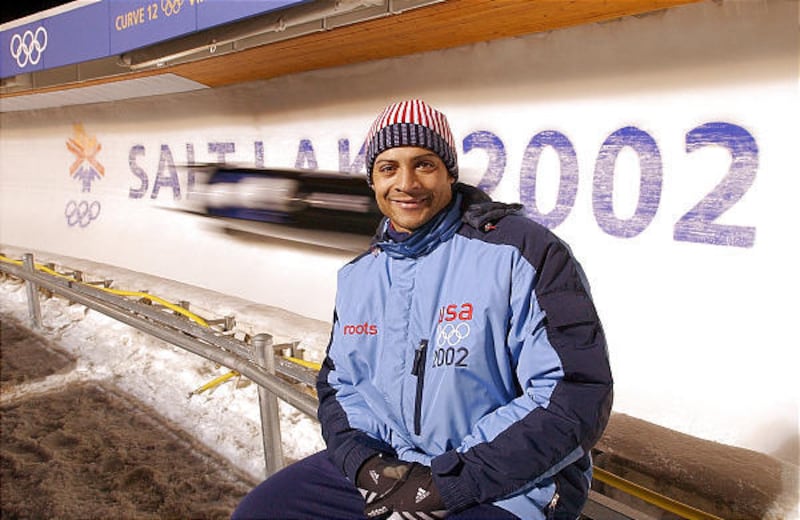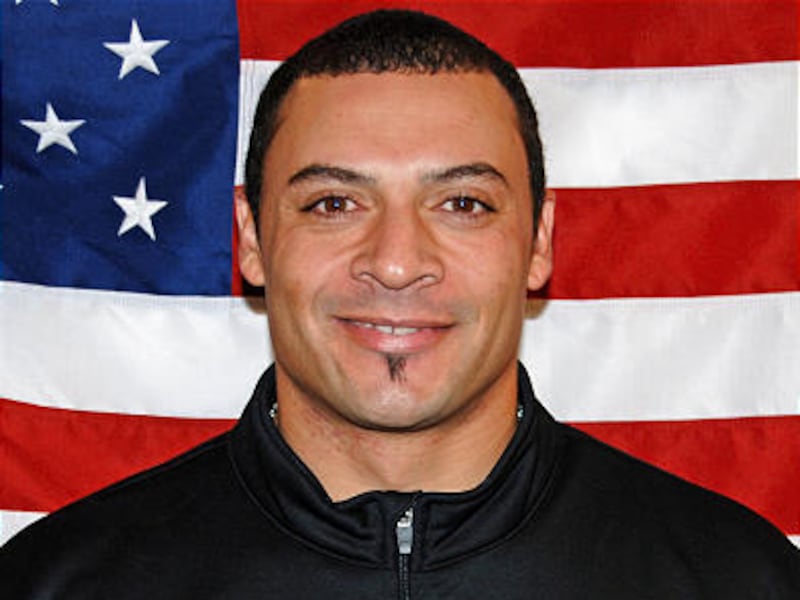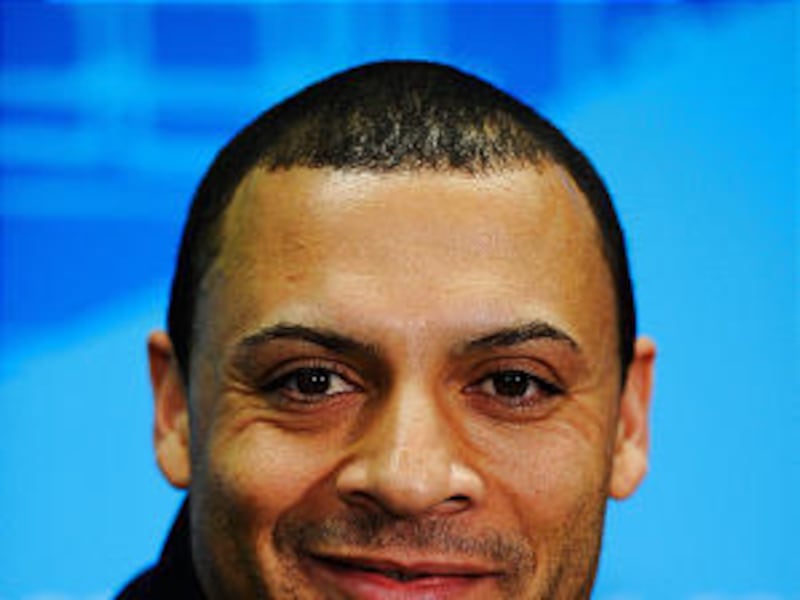VANCOUVER — Roaming the streets with his drug-addicted parents, it never occurred to young Bill Schuffenhauer that he might someday compete in the Olympics.
Instead, he worried about whether or not gangs would harass him, if his mom's "tricks" would come lurking around or where he might score some booze. But even as he bounced from living on the streets to foster care
and ultimately juvenile detention, he yearned for a better life.
"It wasn't so much me starting to get into trouble, I was kind of born into the situation," said the 36-year-old who won a silver medal in the four-man bobsled event in the 2002 Winter Games and will represent the U.S. in Vancouver in the days to come. "Both my mom and dad were heavily into drugs and the street life. ... I was following in the same footsteps as my mom and dad."
It was his maternal grandmother who finally gave him a chance to be something other than what he saw on the streets of Salt Lake City.
"My Grandma stepped in, she lived just outside Ogden at the time, and I moved up there with her," he said. "Every child is looking for something better. ... When I moved to Roy, I had an opportunity to see what better was. It was the family life. That's what I wanted.
"I didn't have to always look over my back. I didn't have to think about running from cops. I didn't have to think about gang members or tricks coming to my house to put down my family. ... It was such a refreshing feeling that I thought, 'That is something I need to pursue. Do I know how? No.' "
He couldn't have felt more different than his peers in those first few weeks, but he found a way not only to fit in, but to thrive in his new home.
"When I went up (to Roy) in seventh grade, I had raggedy clothes and an afro," said Schuffenhauer. "It was definitely a very different experience. ... When I walked into the junior high, all the kids were like 'Whoa, who is this guy?' "
So, at 13, he found himself a role model. It wasn't a movie star or a professional athlete. It was just another junior high student — Jake Schultz.
"He was the All-American-looking kid," he said with a grin. "He did sports; everyone liked him. He was just 'that guy.' I wanted to be like him."
He began making changes in his life. First and foremost, he began to do better in school so he could participate in track and field and then football. It was a track coach, Neville Peterman, who got him daydreaming about someday winning Olympic gold.
After teaming up with Schultz to help Roy High win a state track and field championship, Schuffenhauer went on to achieve stardom as an outstanding track athlete at Weber State University.
"It was a long process," he said.
Surrounding himself with good friends, playing sports and dreaming big all helped Schuffenhauer create a healthier, happier life. But key in making those changes was his grandmother, Sadie Muniz.
"She's been there through everything," he said, fighting back tears. "I have a lot of people in my life to be thankful for, but she's definitely got to be my number one inspiration. She's been there through thick and thin. She's pulled me out of juvenile detention centers, pulled me off the streets, she's been there all the way from the street life to the Olympic podium here in Salt Lake."
Muniz has always had faith in her grandson, even when he didn't believe in himself.
"She always says, 'Mi hijo, you go out and do anything you want. No matter what you do, I'm going to be proud of your accomplishments,' " he said, his voice choking with emotion. "I am just thankful I had an opportunity to do what I've done and take it to the highest level."
Schuffenhauer's life has been defined by his ability to set goals and achieve them. It helped him abandon a life of destructive and criminal behavior, and it helped him earn an Olympic medal in 2002.
It was key, most recently, in successfully coming out of retirement, fighting through painful, debilitating injuries and earning a third trip to the Olympic games.
Two years ago, Schuffenhauer decided that his career in bobsledding wasn't over.
"Todd Hays (bobsled driver) and myself, we talked about it two years ago," he said. "We won a silver medal here (in Salt Lake City) in 2002, and we'd talked about doing the whole comeback and getting the team together."
The two came up with a plan, and thanks to the support of their families, began to work their way back to the U.S. National Team.
"I was doing what I needed to do, and then at the beginning of this season, I had a major injury," he said.
Two bulging discs not only caused him severe pain, but they also stole critical strength from one of his arms. He continued to work out while seeking help from a chiropractor and a physical therapist.
"I was fortunate enough to be strong enough to be able to make the national team and travel, but I spent the whole season as an alternate," he said, noting the role allows athletes to work out with the team, including travel, but not compete. "It was very weird for me because I'd never been an alternate.
"But the whole game plan was to stick with it, work hard. I knew I'd sacrificed a lot, my fiance', my family had sacrificed a lot, so I had to stick with it."
Hays, meanwhile, crashed in a training run and suffered a career-ending head injury. His push athletes then found themselves vying for spots with other drivers. Alpine's Chris Fogt ended up with John Napier in USA 2, while Schuffenhauer asked coaches for a "race-off" with another push athlete.
"I had changed my workout routine, gained some strength. I was granted the opportunity (to race off) and was very successful," he said. "Once I made the national team, the next thing was to see if we could get Mike Kohn (the driver) qualified for the Olympics."
Getting three bobsleds qualified for the 2010 Games was a long shot. But Schuffenhauer knows something about beating the odds.
"From the time we knew we were going to be together and have the opportunity to compete, we spent 24-7 together," he said. "We ate together; we made sure we worked out together, we even went to the store together. We knew we were behind at that point. We had to do everything we possibly could just to catch up and capitalize on that."
The team accomplished the impossible in St. Moritz, Switzerland, where it finished sixth.
"I was crying; the team was crying," he said. "The European teams were coming up to us because they knew what it meant. ... I wish a lot more people would have had the chance to share that with the team because I've never seen a group of guys come together in a team bonding situation as they did for that race."
Despite accomplishing so much in his 36 years, Schuffenhauer is not yet finished. Not only does he plan to marry his fiance', Ruth Ann Savage, he is going to college to become a chiropractor as well.
Oh, and he's going to try to pull off one more miracle by earning another medal before he leaves bobsledding behind for good.
e-mail: adonaldson@desnews.com

